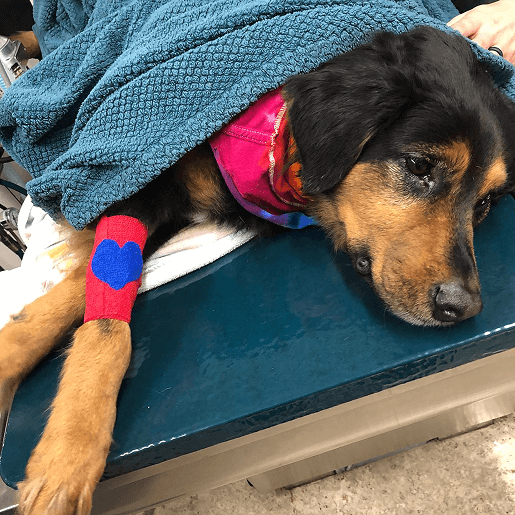Duvall Veterinary Hospital provides comprehensive surgical services for pets in a safe, caring environment. Our experienced veterinary team performs a wide range of procedures, from routine spaying and neutering to complex soft tissue surgeries. Using modern anesthesia protocols and continuous patient monitoring, we ensure your pet’s safety and comfort throughout every procedure.
Spaying & Neutering
Spaying or neutering your pet has many benefits. These procedures prevent animals from reproducing and can help your dog or cat live a longer, healthier life. Rest assured, spaying or neutering will not change your pet’s personality.
Benefits for Female Pets (Spaying)
By spaying your female pet, you protect her against potentially deadly diseases, including bacterial infections, reproductive tract diseases, and several types of cancer. You also won’t have to worry about her going into heat, avoiding the mess that often accompanies the heat cycle in female dogs, and the pacing and crying that happens with female cats.
Benefits for Male Pets (Neutering)
By neutering your male pet, you’re reducing or eliminating his risk for prostate and testicular cancer, as well as sexually transmitted diseases. Neutering will also reduce or eliminate undesirable behaviors, including roaming, fighting, humping, and spraying. Both procedures help control the dog and cat overpopulation problem, keeping more animals out of shelters.
About the Procedures
Spaying involves removing the ovaries and uterus, while neutering involves removing the testicles. Both are surgical procedures performed under anesthesia. We follow strict protocols and continually monitor your pet’s vital signs to ensure safety during these procedures.
To schedule an appointment or discuss any concerns about spaying or neutering your pet, please call us at 425-336-4861.
Soft Tissue Surgery
We perform many types of soft tissue surgeries at our clinic. These surgeries are not associated with bone and can benefit pets.
Mass Removal
One of the most common soft tissue surgeries we perform is the removal of masses or lumps. While most of these masses are benign (nonharmful) once tested, early removal and accurate diagnosis are necessary to improve outcomes if the mass is cancerous.
Ear and Eye Procedures
If your dog suffers from frequent ear infections, surgical intervention can improve airflow into the ear canal, reducing occurrences.
Surgery can also help resolve eye-related problems. Tearing may indicate infection or corneal damage; surgery can allow faster healing with less scarring. In some pets, eyelashes may damage the cornea, and surgical intervention improves comfort, reduces scarring chances, and enhances long-term vision.
Anesthesia and Patient Monitoring
General Anesthesia
For many procedures, general anesthesia is necessary to ensure your pet is unconscious and pain-free. Modern anesthesia is generally quite safe; we further lower risks by performing a physical examination and running blood work beforehand to identify any underlying health issues.
Our anesthetic protocol begins with administering a sedative to help your pet relax and decrease anxiety and pain. We then administer an intravenous drug for complete anesthesia and place a breathing tube into the trachea (windpipe). To maintain unconsciousness, we deliver a gas anesthetic with oxygen through the breathing tube.
Local Anesthesia
We may use local anesthetics to control pain for minor surgical or diagnostic procedures. These cause a loss of sensation in the specific area. We sometimes combine this with a sedative or anti-anxiety medication to keep pets calm during the procedure.
Patient Monitoring
We monitor patients closely during anesthesia to ensure safety. To minimize anesthetic risks, a veterinary technician continually assesses your pet’s heart and respiratory rate, blood pressure, and other vital signs.
Tranquilization/Sedation
If travel, thunder, or fireworks upset your pet, tranquilization or sedation may help. While sedated, your pet will stay awake or sleep lightly but can be roused when stimulated. We assess each animal individually before dispensing these medications to minimize potential risks.
Pain Management and Control
We offer various medications to manage your pet’s pain before and after surgery or in the event of trauma. We’re happy to discuss available options for your pet under any circumstances.
If you have any questions about our pet surgery services, please contact us at 425-336-4861.
